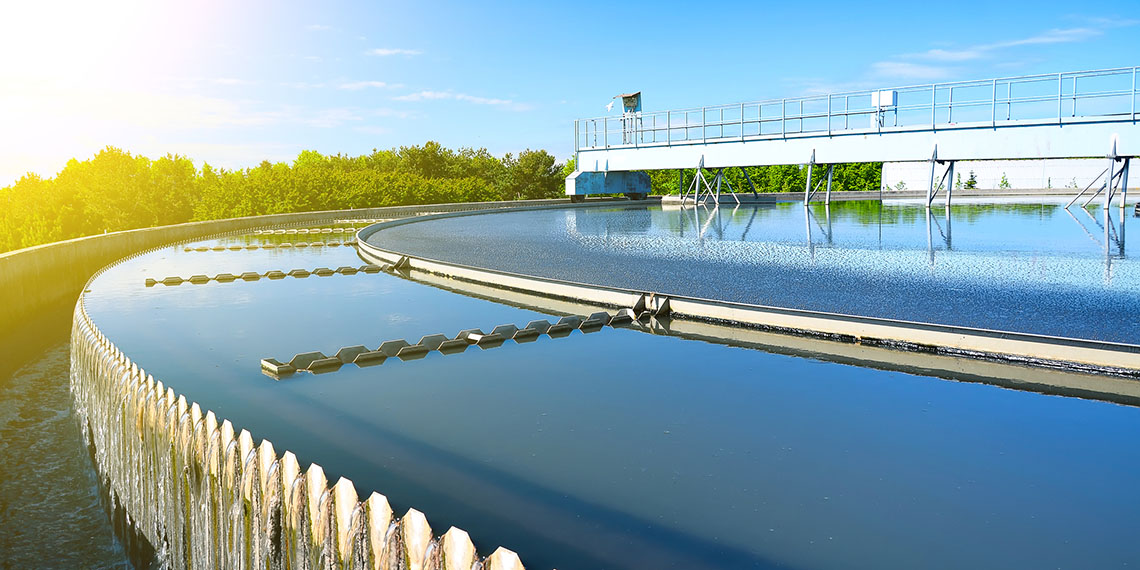Building the business case for recycled wastewater

From cost savings to climate resilience, recycled wastewater has many advantages, but during 2019-2020, it provided just 7% of Australia’s urban water supply.
Director of Synergies Economic Consulting Dr Martin van Bueren says that even though wastewater recycling is gaining acceptance, there remain constraints to its wider adoption, even when there is a sound economic case for its use.
Speaking at Ozwater’22, van Bueren will explore the market, institutional and policy factors that impede the use of recycled wastewater as an economical, alternative approach for meeting water needs.
“The business case for wastewater recycling is primarily to provide a climate independent source of water that can be supplied cost-effectively and sustainably relative to building more dams, desalination plants, or increased groundwater extraction,” van Bueren said.
“I live on the West Coast in Perth where we've been experiencing probably a 15% to 20% drop off in annual rainfall over the last 15 years. So that's affecting not only our dams, but also the amount of recharge to groundwater sources.
“Wastewater recycling can provide a supplementary source of water, meaning it can substitute for the use of groundwater or drinking water in some situations.”
Van Bueren explored four proposed wastewater recycling projects in the Perth area as case studies, with analysis seeking to extend beyond pure financial considerations, taking in instead broader social and environmental considerations when weighing the advantages of recycling compared to alternative water sources.
“We assessed each project using an economic benefit-cost framework, which incorporates not just the financial values, but also the environmental and social values — and we monetise those values,” he said.
“In every case study, we found that a wastewater recycling option came up on the top as being a good outcome in terms of delivering a positive net present value.
“We found that in many of the options examined, with the improving technologies of wastewater recycling, we were able to produce a water source that industry would be prepared to buy, and it would be lower cost than supplying them with drinking quality water. So there was a straight-out financial benefit for some of those industrial users.
“Some recycling options and infrastructure configurations didn’t pass the financial test, but they passed the economic test, and there is a difference.”
Van Bueren said the financial test considers whether a provider can recover its costs through pricing, and if there is a market that's willing to pay those prices.
“The economic value is different because it includes the monetised value of improved environmental outcomes and amenity benefits to the community. Improved livability in urban areas is able to be achieved through wastewater recycling by providing a relatively inexpensive source of irrigation water for keeping public open space green over summer,” he said.
“In Perth, councils and government have come up with beneficial ratios of how much public open space should be provided in new developments, and we're struggling to meet those ratios because we're running out of groundwater to actually keep the landscape green.
“And the economic value of recycling also includes a range of avoided costs across the water and wastewater network, which may not actually be able to be reflected through pricing of recycled water.
“For example, there's the deferral of capital costs, and that's really important because some of the costs of developing drinking water supplies run into the billions of dollars. So if you can push those out a bit longer into the future, the capital savings alone often justify looking at recycled water.”
Van Bueren also pointed to the advantages increased wastewater recycling has for wastewater treatment infrastructure.
“The conventional approach is to build large, centralised wastewater treatment plants to take sewage and treat it to a standard that can then be discharged to ocean or to a waterway,” he said.
“As population grows, those water treatment plants need to be expanded and it's very expensive to upgrade them or build new ones. So what wastewater recycling can do is actually take some of that wastewater load off the central wastewater treatment plant, and it will defer the time point at which those big central plants need to be upgraded.”
Since this can involve multi-million dollar investments, he said, deferring an upgrade for five to ten years can be extremely valuable.
Reducing the flows going through wastewater treatment plants can also deliver environmental benefits. For example, I know in some states there's some issues around the concentrations of nitrates and phosphates of that discharge entering the coastal environment.
“Over time, the receiving water bodies can suffer from algal blooms and other such problems. So environmental regulators are progressively ratcheting up the water quality standards that must be met by utilities who are discharging to sensitive coastal environments,” van Bueren said.
“Achieving these standards will involve installation of expensive equipment for filter out the excess nutrients.”
Recycling the wastewater before it gets to those water bodies, however, can defer the need to invest in expensive upgrades to wastewater treatment plants.
Interested in hearing more about recycled water markets and policy setting? Register for Ozwater’22 here.


